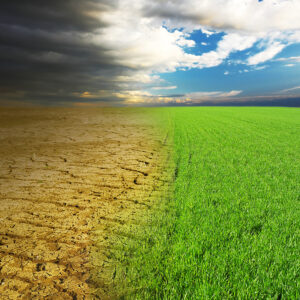For an alternate point of view see: Point: Counting Hurricanes in a Post Truth World
The adage that “nothing is certain except death and taxes” ought to be updated for our modern times to: nothing is certain except death, taxes, and government-generated climate alarmism.
In late May, the National Oceanic and Atmospheric Administration predicted that the “coming Atlantic hurricane season is expected to have above-normal activity due to a confluence of factors, including near-record warm ocean temperatures in the Atlantic Ocean.”
Specifically, “NOAA is forecasting a range of 17 to 25 total named storms … including 4 to 7 major hurricanes.”
Of course, NOAA points to “human-caused climate change” as the primary culprit for its apocalyptic hurricane season warning. According to NOAA, “human-caused climate change” is solely responsible for “warming our ocean globally,” “melting ice on land,” and “sea level rise.”
In 2022, NOAA issued a very similar hurricane season prediction, which was way overblown. “Overall, the 2022 Atlantic hurricane season featured near normal activity in terms of the number of named storms and hurricanes, but was slightly below average in terms of the number of major hurricanes,” notes the National Hurricane Center.
Just because NOAA was wrong in 2022 does not mean that its 2024 prediction will be wrong, too. However, more important, the entire narrative about hurricanes becoming more frequent and more intense due to anthropogenic (human-caused) climate change is not true.
Consider.
In 2012, the Intergovernmental Panel on Climate Change stated, “Many weather and climate extremes are the result of natural climate variability (including phenomena such as El Niño), and natural decadal or multi-decadal variations in the climate provide the backdrop for anthropogenic climate changes. Even if there were no anthropogenic change in climate, a wide variety of natural weather and climate extremes would still occur.”
In 2014, the National Climate Assessment stated, “There has been no significant trend in the global number of tropical cyclones nor has any trend been identified in the number of US land-falling hurricanes.”
Moreover, in 2018, the IPCC reported that there is “only low confidence for the attribution of any detectable changes in tropical cyclone activity to anthropogenic influences.”
In 2019, a peer-reviewed report in the American Meteorological Society stated, “The majority of authors had only low confidence that any other observed tropical cyclone changes were beyond what could be attributed to natural variability.”
In 2020, the World Meteorological Organization acknowledged that “any single event, such as a severe tropical cyclone, cannot be attributed to human-induced climate change, given the current status of scientific understanding.”
Perhaps Steven E. Koonin, the undersecretary for science in the Department of Energy in the Obama administration, put it best when he said, “Pointing to hurricanes as an example of the ravages of human-caused climate change is at best unconvincing, and at worst plainly dishonest.”
Over the past century, the number of hurricanes on a per-decade basis making landfall in the United States has declined. For instance, in the 1850s, well before humans harnessed fossil fuels as a viable energy source, 20 hurricanes made landfall, including six “major” storms. In the 1940s, 24 hurricanes made landfall, including 10 significant storms.
Obviously, the experts at NOAA can read graphs that illustrate the frequency and severity of hurricanes striking the United States have not increased over the past several decades.
So, why does NOAA, along with so many other government-affiliated organizations, continue to engage in public fearmongering regarding hurricanes, wildfires, tornadoes and so forth? They need to create panic and instill fear to justify their very existence. It is self-preservation.
Like it or not, climate change is big business. Over the next decade, the United States will spend at least $500 billion to “combat” climate change. To keep the money flowing, the government needs an endless list of scary predictions to keep the alarmist narrative going.
The good news is Americans are beginning to realize that they are being lied to about climate change. More and more, polls show that Americans no longer automatically believe that climate change is an existential threat. Because they are starting to lose their hold, the alarmists are resorting to even more desperate measures.
Please follow DVJournal on social media: Twitter@DVJournal or Facebook.com/DelawareValleyJournal

